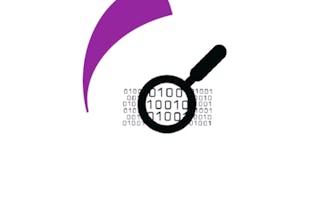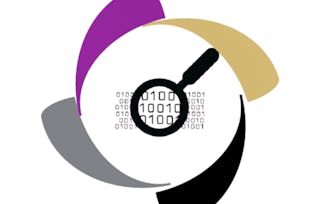Welcome to Course 2 of Introduction to Applied Cryptography. In this course, you will be introduced to basic mathematical principles and functions that form the foundation for cryptographic and cryptanalysis methods. These principles and functions will be helpful in understanding symmetric and asymmetric cryptographic methods examined in Course 3 and Course 4. These topics should prove especially useful to you if you are new to cybersecurity. It is recommended that you have a basic knowledge of computer science and basic math skills such as algebra and probability.

Mathematical Foundations for Cryptography
Seize the savings! Get 40% off 3 months of Coursera Plus and full access to thousands of courses.

Mathematical Foundations for Cryptography
This course is part of Introduction to Applied Cryptography Specialization


Instructors: William Bahn
21,297 already enrolled
Included with
334 reviews
Details to know

Add to your LinkedIn profile
9 assignments
See how employees at top companies are mastering in-demand skills

Build your subject-matter expertise
- Learn new concepts from industry experts
- Gain a foundational understanding of a subject or tool
- Develop job-relevant skills with hands-on projects
- Earn a shareable career certificate

There are 4 modules in this course
Earn a career certificate
Add this credential to your LinkedIn profile, resume, or CV. Share it on social media and in your performance review.
Instructors
Offered by
Explore more from Computer Security and Networks
 Status: Preview
Status: PreviewUniversity of Leeds
 Status: Preview
Status: PreviewUniversity of London
 Status: Free Trial
Status: Free TrialUniversity of Colorado System
 Status: Free Trial
Status: Free TrialUniversity of Colorado System
Why people choose Coursera for their career

Felipe M.

Jennifer J.

Larry W.

Chaitanya A.
Learner reviews
- 5 stars
74.55%
- 4 stars
18.26%
- 3 stars
4.79%
- 2 stars
1.19%
- 1 star
1.19%
Showing 3 of 334
Reviewed on May 23, 2020
This course provided me a better insight into the mathematical foundations of crytpography.
Reviewed on May 31, 2020
Though a little difficult to understand, it is a great course for math lovers out there.
Reviewed on Aug 18, 2018
Good course, but would like some more exercises to implement the mathematics learnt.

Open new doors with Coursera Plus
Unlimited access to 10,000+ world-class courses, hands-on projects, and job-ready certificate programs - all included in your subscription
Advance your career with an online degree
Earn a degree from world-class universities - 100% online
Join over 3,400 global companies that choose Coursera for Business
Upskill your employees to excel in the digital economy

